Why the lack of availability of trucks for shipments to Mexico?
One of the challenges of ground transportation in the North American commercial zone is the complexity of the freight border-crossing between the United States and Mexico. In this post, we analyze the role of two important elements for cross-border freight transport: the transfer companies and the B1 drivers. As well as the impact that their role has had on the market and on the availability of trucks to ship products to Mexico.
The tables are turned: Importing companies to Mexico go shopping
Before the COVID crisis, the North American freight market was tipping the balance towards exports. There was greater demand for shipments going from Mexico to the United States and Canada, than for shipments transported in the opposite direction. Companies with import shipments to Mexico enjoyed preferential rates and had a wide range of suppliers to choose from.
Now the tables are turned. There are more and more importing companies to Mexico facing increased rates for ground transportation in all its modalities: dry goods, refrigerated, and hazmat. And they are now shopping.
Why has equipment availability for shipments imported to Mexico decreased?
The low availability of transportation equipment to import goods to Mexico is due to the confluence of several interrelated factors that have caused a domino effect. In summary, there are two predominant reasons:
- An increased presence of B1 operators and reduced demand for Transfer companies
- The historic shortage of truck drivers, exacerbated by the COVID crisis
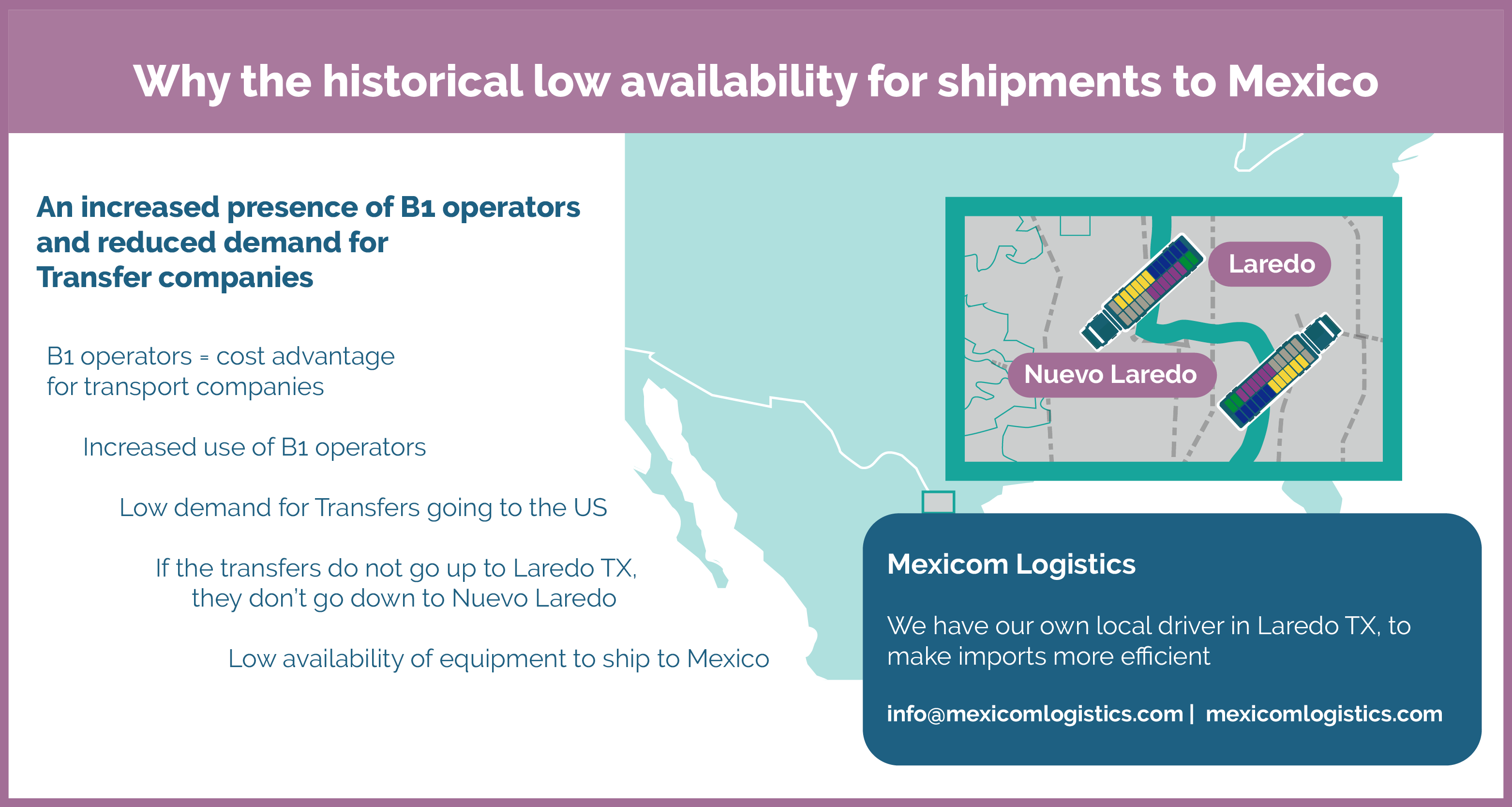
An increased presence of B1 operators and reduced demand for Transfer companies
An important piece of information to understand how cross-border freight transportation works between Mexico and the United States is that Mexican commercial cargo trucks cannot access beyond the commercial border zone with the United States. That is why the figure of “Transfer” arose, which is a transport company in charge of carrying out the crossing of merchandise across the border between Mexico and the United States. Historically, the transfer received cargo from a company in Mexico, crossed the border doing customs procedures and delivered the goods to a company in the United States.
What changed? In recent years, the hiring of B1 operators – or “biguaneros“, as they are called in the jargon of the freight transport industry – for shipments entering the US has increased. What are B1 operators? They are Mexican freight transport drivers who are authorized to move freight from the Mexican border to US territory. The use of B1 operators results in a lower cost for transport companies, which is why the presence of B1 operators has been increasing over the last years. This has caused a drop in demand for Transfer companies. Transfers no longer go up to Laredo Texas, as a result, the availability of equipment to transport imports to Mexico has dropped.
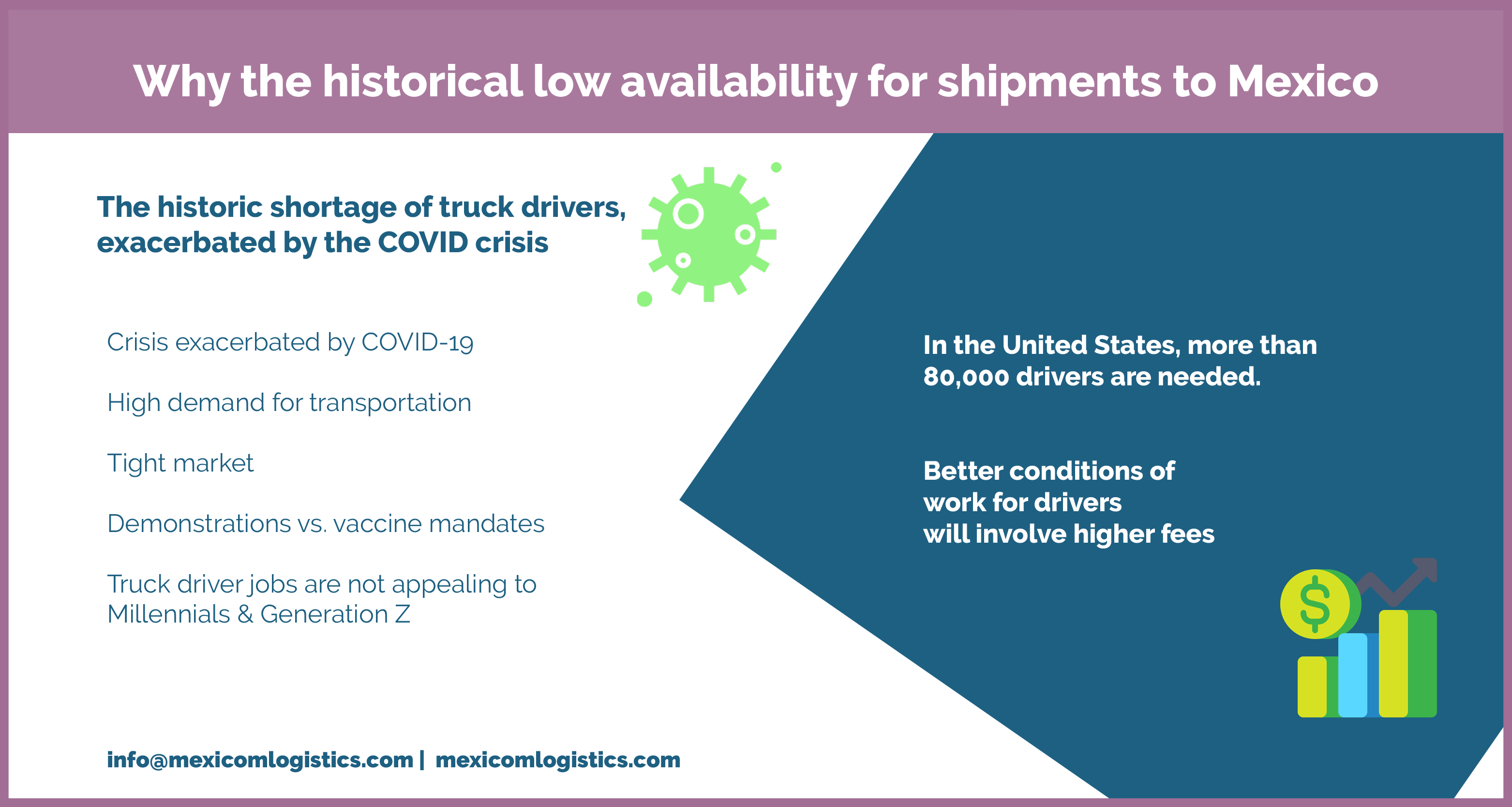
Historical shortage of truck drivers, exacerbated by the COVID crisis and Millennial and Gen Z preferences.
The lack of truck drivers has been known for years. According to an estimate issued by the American Trucking Association, more than 80,000 drivers are needed in the United States alone. What is the reason for the lack of drivers? Several causes.
Truck driver job is not appealing to Millennials and Gen Z
The “new” generations are no longer attracted to the working conditions of truck operators. The priorities of Millennials and Generation Z towards employment are the same: flexibility and well-being. Conditions incompatible with the working conditions faced by a truck driver. The increasingly demanding supply chains, with consumers who demand products with almost immediate delivery, force the industry to have excessive working hours, long periods away from home, performing the same task for continuous hours, etc.
The task of convincing a Millennial or Gen Z to get on a truck is difficult. The job offer cannot be like before, it has to come with many other benefits that balance the disadvantages. What does this mean? Undoubtedly better conditions for drivers, leading to increased freight rates.
The COVID crisis increased the pressure on a pressure cooker that was already about to explode.
The pandemic has highlighted the historical problem of the lack of truck drivers. The markets took an unprecedented turn and the temporary closure of businesses disorganized the production, transport, and storage chains. On the other hand, online sales have increased exponentially, while consumers no longer want to wait to receive their orders. The expectations of the final consumer are reduced to 2-5 business days for the reception of the product. This puts pressure on the entire chain, more and more drivers are required when the industry has already suffered from a lack of them for years.
Moreover, some drivers stopped working temporarily. Some because they received economic benefits during COVID, others because they were ill, and some more because the exception to the vaccination requirement was lifted or because they participated in demonstrations against the vaccination requirement.
How to deal with the current freight crisis? Create a strategic alliance with your 3PL, Mexicom Logistics: Contract shipments & rates
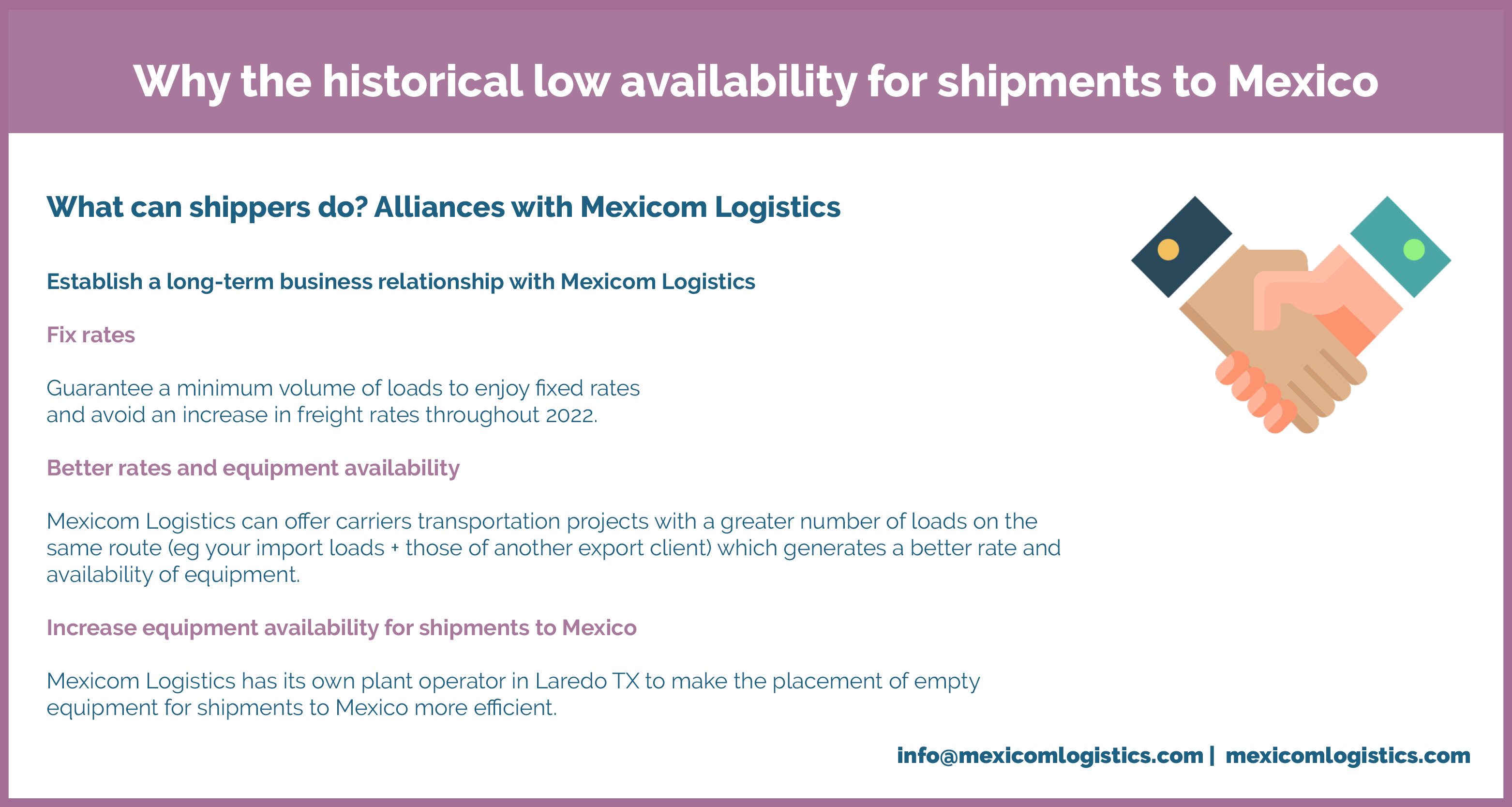
Noticing the increase in rates and the decrease in the availability of equipment to import goods to Mexico, you, as a shipper, have probably been knocking on the door of transport providers to obtain better rates. By doing this, you have noticed that the rates fluctuate and the trend is for the price to continue to rise. How can you turn this situation around?
Establish contracts with your logistics provider, this will allow you to:
- Access to fixed rates for a period of time, avoiding the unexpected increase in rates forecasted throughout 2022.
- Get better rates and equipment availability. The 3PL provider such as Mexicom Logistics can offer carriers transportation projects with a greater number of loads on the same route (eg your import loads + those of another export client) which results in obtaining better rates and availability of equipment.
- Increase the availability of equipment for imports. Mexicom Logistics has its own operator in Laredo TX to make the placement of empty equipment for imports more efficient.
Contact Mexicom Logistics,
your allies for international freight transport projects
Mexico-US-Canada
+1 514 667 0175 | info@mexicomlogistics.com

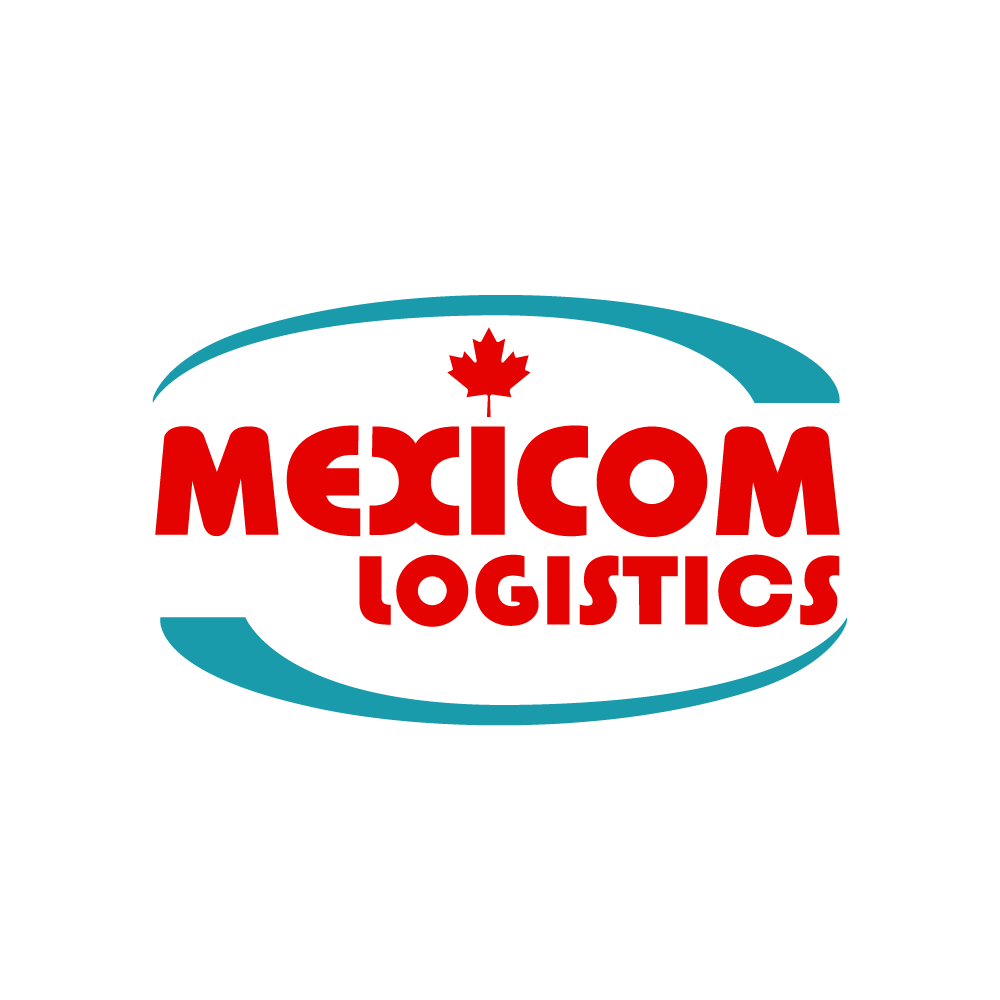






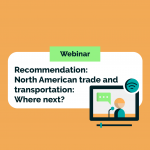

The article was up to the point and described the information very effectively. Thanks to blog author for wonderful and informative post.
I am extremely delighted with this web journal. It’s a useful subject.
Public transport in canada is highly appreciated work doing for canadians people .
The article was up to the point and described the information very effectively. Thanks to blog author for wonderful and informative post